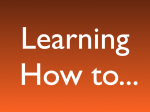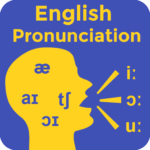|
|

Welcome English learners!
I wish to express my grateful acknowledgment to all the owners of the visual images enhancing this website. They have been ‘borrowed’ without giving their authors the credit they deserve.
¤ HOW to SURF this SITE
The best way to […]

«Good stuff, if brief, twice as good.» – It was an Aragonese writer that said that (Baltasar Gracián)
Θ
There are two good reasons why English learners should take interest in these expressions of oral tradition.
For one thing, they provide an extraordinary word bank you […]

•→Commenting-on-the-news/⇐[speaking]
•→http://www.englishpage.com/readingroom.html⇐
World news for students of English in three levels ⇑ Dead easy!
¤ Special English
A simple form of the English language, used by a public radio station called Voice of America, run by the United States government in Special English programs […]

⇐ There are many ways of laughing… ←
…many kinds of laughter ⇐
* * *
¤→Shiny shiny⇐(a challenge for translators)⇒
Φ ‘Una lección para guiris’:
⇒ attitudinal idiomatic expressions ⇐
* […]

•→ English greetings ←[introducing yourself & other people]
← There are many ways of bidding someone farewell →
Some are very specific;
others restricted to some territories.
¤ Vagueness in spoken English
Vague language […]

♦ American comedian Elon Gold ↓ …on English accents
You know, the problem that here in America, when it comes to the English, we mistake accents with intellect; right? We think they’re smart, because no matter what they’re talking about, they sound quite intelligent.
It doesn’t really matter; they […]

•→ www.howjsay.com⇐ / •→MacMillan Online Dictionary⇐
⇐ Tips & links
•→ speechactive.com/english-consonants-ipa-international-phonetic-alphabet/ ⇐
•→cambridgeenglishonline/Phonetics_Focus/⇐[tasks]
∞ Minimal Pairs ⇒[01] ⇔ [02] ⇔ [03]⇐
• Find the odd one out: which word does not rhyme with the others?
⇒[01] ⇔ [02] ⇔ [03] ⇔ [04]⇐
©→U maze← [quiz] → O maze←© […]

Learning strategies or study skills ⇑ determine the approach for achieving the learning objectives. The strategies are usually tied to your needs and interests to enhance learning and are based on many types of learning styles.
¤ Learning strategies ← ¤ Guessing meaning from context ←(A favourite strategy)
•→Better […]

• Speaking generally, there are two types of language learner:
The first type gets really worried about making errors or mistakes. They think about everything that they say carefully. Sometimes, if they start to say something, and then realise they have made a mistake, they will stop and correct that mistake, […]

The best way to improve is to listen to English. A lot. There’s no way around it; you have to spend hours and hours listening to people speaking English. Listen to things that interest you. If you don’t enjoy something, it’s going to be hard for you to continue. You’ll get bored and […]

•→www.thefictiondesk.com/ten-ways-to-improve-your-writing-for-free/⇐
¤ 6 ways to improve your English writing skills
Today it is very trendy to focus primarily on communicative skills and neglecting writing as a method of learning an English language. Though it is essential to make yourself understood in speech, writing is equally important in the […]

Auxiliary verbs are needed in English for both questions and negative statements. They are grammar words, and typically de-emphasized in speech by being uttered in a very soft voice. They often appear as question-tags in everyday conversation… «You know what I mean, don’t you?»
When we write in […]

Most misunderstanding in real life stem from our own misconceptions / misrepresentations of language: things we think/believe we know (Do we?)
Cognates may be a trap, but not for you!
¤ Deceptive cognates: → VERBS ← → NOUNS ← → ADJECTIVES & ADVERBS ← Φ Spanish/English deceptive cognates ⇒
As many books and […]

The→THREE DISCOURSE PRINCIPLES ←[Advanced] •→INFORMATION ORDERING ⇔ [quiz] ←
• Here’s a great lesson on →DISCOURSE MARKERS← courtesy of Kenneth Beare, an ESL teacher, trainer, and content developer. He provides consulting services for English language learning projects through Englishfeed, as well as being the founder of Lingofeeds, dedicated to English for […]

•→Basic Sentence Parts← / •→The Parts of Speech←
•→ Randomly-Generated Sentences ←
¤ Basic sentence structure … ⇒[1] ⇔[2] ⇔ [3] ⇐ [syntax]
♦ → Word Order: ↑ Sentence Structure ↑ / ↓ Position of Adverbs ↓
¤ Word order quizzes: ⇒ [01] […]

•→Sounds of The Alphabet⇐
¤ English Spelling
Chaotic though it may seem, the English spelling system has its own rules, like most languages do. English borrowed thousands of words from all over the world, which is why there are so many exceptions.
Φ Spelling Rules →[01]← / →[02]←
•→ […]

¤ Markéta Guňková: Why teach delexical verbs?
(1) frequency: Delexical verbs are common structure in English, either in everyday conversations (have a drink, give a call, take a break) or in academic English (make a contribution, give a speech, do research).
(2) fluency: delexical structures contribute to the impression of fluency […]

In linguistics, one of many styles or varieties of language determined by such factors as social occasion, purpose, and audience. More generally, register is also used to indicate degrees of formality in language use.
Formal Style Informal Style Legal English Levels of Usage ¤ Formal & informal English: explanations & tips…
abril 15th, 2015 | Tags: tips, style, quiz | Category: FunctionaLang |

⇔[Listen & Read]⇐
⇐ British Life & Culture ⇒[01]⇔[02]⇔[03]⇐
What Made The Crocodile Cry? – 101 questions about the English language.
Susie Dent draws on her popular television coverage of curious questions about English […]

Film Words with Definitions: ⇒[01] ⇔ [02] ⇔ [03] ⇔ [quiz 01] ⇔ [quiz 02]⇐
•→http://photographicdictionary.com/stage-screen⇐
φ → Types of films ⇐
• Movie QUIZZES . . . ⇒[01] ⇔ [02] ⇔ [03] ⇔ [04] ⇔ [05] ⇔ [dominoes]⇐
English with […]
|
|

















